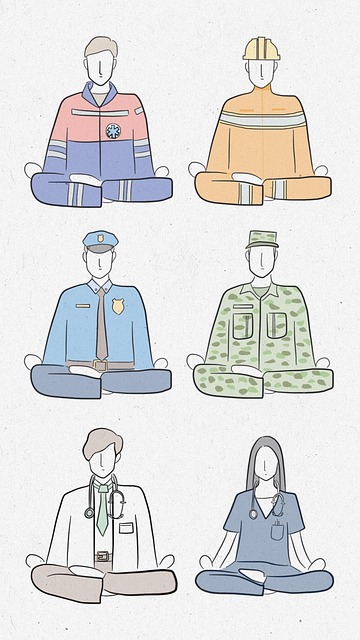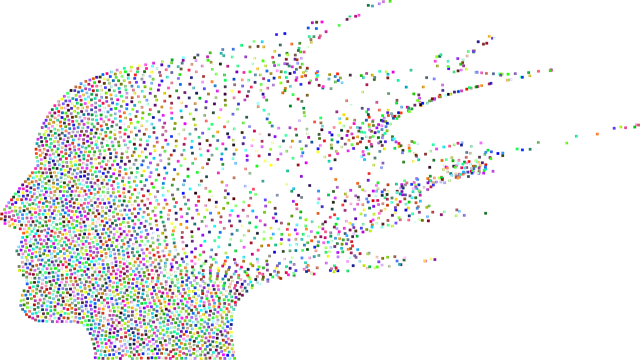Stress is a significant challenge for young adults, often stemming from academic, career, financial, or relationship issues, leading to mental and physical health problems. Grief counseling offers a supportive environment for processing emotions, building resilience, and improving self-esteem, addressing unprocessed grief and emotional pain. Cultural competency training equips healthcare providers to deliver tailored grief counseling, catering to diverse young adult needs. This approach enhances stress management, reduces anxiety and depression, and improves overall well-being through coping skills development, ultimately providing a unique path to building resilience against life's stressors.
“Stress management is a vital skill, especially for young adults navigating today’s challenges. This article explores effective strategies to combat stress and its profound impact on this demographic. We delve into the significance of understanding stress triggers, with a focus on grief counseling as a powerful therapeutic tool.
Through an examination of various therapy techniques, readers will discover practical ways to incorporate healthy coping mechanisms. From cognitive-behavioral therapy to mindfulness practices, these strategies empower young adults to manage and reduce stress, fostering overall well-being.”
- Understanding Stress and Its Impact on Young Adults
- The Role of Grief Counseling in Stress Management
- Effective Therapy Techniques for Stress Relief
- Practical Steps to Incorporate Healthy Coping Strategies
Understanding Stress and Its Impact on Young Adults

Stress is a ubiquitous aspect of modern life, especially for young adults navigating their personal and professional journeys. It can stem from academic pressures, career uncertainties, financial constraints, or interpersonal relationships. Understanding stress goes beyond recognizing its symptoms; it involves comprehending how chronic stress impacts mental and physical health. Young adults who experience prolonged stress may exhibit signs such as anxiety, depression, insomnia, and even physical ailments like headaches or digestive issues. These symptoms can significantly hinder their ability to function optimally in daily life, affecting academic performance, career prospects, and overall well-being.
Grief counseling is one effective therapy for young adults dealing with stress. It provides a safe space to process emotions, foster inner strength development, and enhance self-esteem improvement. Cultural competency training, when integrated into healthcare provider practices, ensures that young adults from diverse backgrounds receive tailored support addressing their unique stressors. By promoting understanding and empathy, cultural competency training enables healthcare providers to offer more effective grief counseling, thereby empowering young adults to better manage stress and build resilience throughout their lives.
The Role of Grief Counseling in Stress Management

Grief counseling plays a significant role in stress management, especially for young adults navigating life’s challenges. Many individuals struggle with stress due to unprocessed grief or unresolved emotional pain stemming from various losses, such as the death of a loved one, relationship breakups, or traumatic events. Therapy for young adults that incorporates grief counseling offers a safe space to explore and express these emotions.
Through this therapeutic process, individuals can develop inner strength and coping skills (Coping Skills Development) to manage stress effectively. Grief counseling helps in understanding and accepting the stages of grief, allowing one to find healthy ways to grieve and move forward. By processing these feelings, young adults can reduce stress levels and improve their overall well-being (Stress Reduction Methods). This approach fosters resilience, enabling individuals to cope with life’s stressors more adaptively, ultimately enhancing their mental health and quality of life.
Effective Therapy Techniques for Stress Relief

Stress management is a crucial aspect of mental wellness, especially for young adults navigating life’s challenges. Among various therapy techniques, Grief Counseling has emerged as an effective tool to help individuals cope with stress and emotional distress. This therapeutic approach is tailored to support young adults who may be experiencing complicated grief or struggling to process difficult experiences.
For instance, the Healthcare Provider Cultural Competency Training emphasizes understanding and addressing the unique needs of diverse populations. By integrating this training into community outreach program implementations, mental wellness services can be more inclusive and effective. Grief Counseling, when delivered with a culturally sensitive approach, can help young adults from varied backgrounds find healthy ways to manage stress, process grief, and enhance their overall well-being.
Practical Steps to Incorporate Healthy Coping Strategies

Incorporating healthy coping strategies is a vital step towards managing stress effectively. For young adults navigating life’s challenges, self-care becomes an essential tool. Start by identifying personal triggers and designing tailored responses; this could involve practicing mindfulness techniques like deep breathing or meditation to calm the mind. Engaging in regular physical activity, maintaining a balanced diet, and securing adequate sleep are fundamental pillars of stress management. These practical steps foster resilience and empower individuals to handle stressful situations with grace.
Consider leveraging empathy-building strategies, such as journaling or participating in support groups, where sharing experiences can create a sense of belonging. For mental health professionals, risk management planning is crucial; incorporating techniques learned from grief counseling into practice ensures a healthy work-life balance. Additionally, community outreach program implementation can extend these coping mechanisms to a broader audience, promoting overall well-being.
Stress management is a vital skill, especially for young adults navigating life’s challenges. By understanding stress and its impact on mental health, individuals can empower themselves through various effective techniques. The article highlights key strategies, including grief counseling and therapeutic practices, offering practical tools to cope with stress. Incorporating healthy coping mechanisms into daily routines can significantly enhance overall well-being, making it a crucial step for young adults seeking to thrive in their personal and professional lives while utilizing therapy for young adults and grief counseling as powerful resources.








